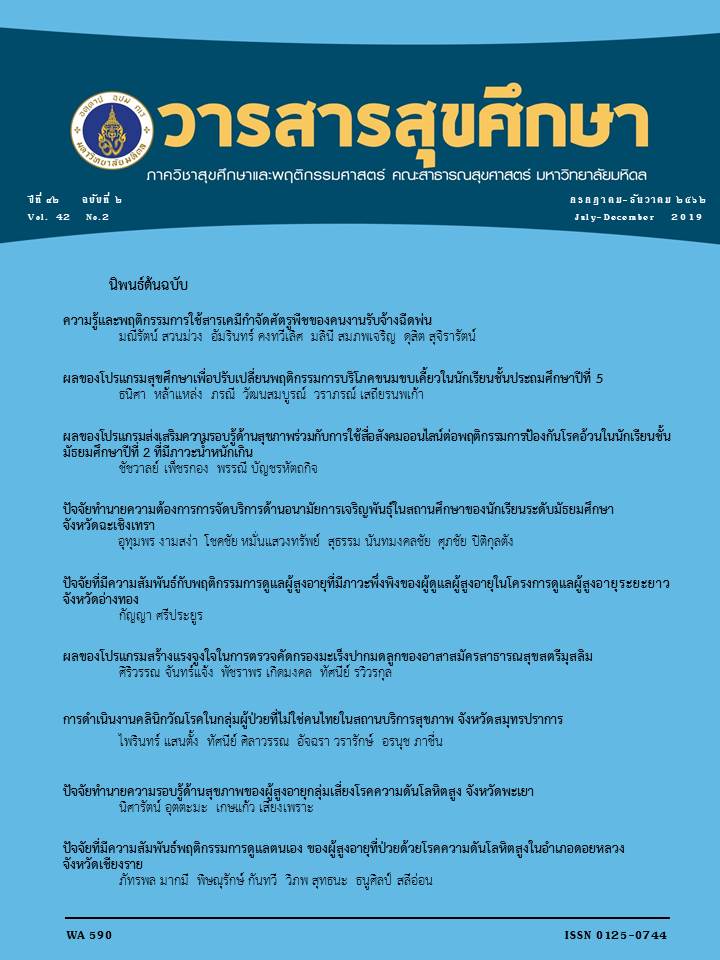Factors Associated to Dependent Care Behaviors among Caregiver of the Long–Term Care for Older Adults Program, Angthong Province
Keywords:
The behaviors of older adults caregivers, Older adults caregiver, Dependent older adults, Long term careAbstract
This descriptive research aimed to examine factors associated to the behaviors of elderly caregivers in the long-term health care program. The sample group is 47 caregivers, who passed the 70 hours health training course in the sites participating in the long-term health care program for the dependent elderly in 2017,Angthong Province. The purposive sampling is conducted. Research tools are questionnaires which consist of four parts: personal characteristics, knowledge of elderly care, attitude of elderly care, and behavior in caring the dependent elderly.Those were passed the content validity from the experts and tested the reliability by Cronbach’s Alpha,KR 20, of knowledge equal to 0.75. Data analysis was conducted by descriptive statistics such as percentage, mean, and standard deviation.Inferential statistics were Fisher’s Exact test statistical hypothesis testing and Pearson's correlation coefficient analysis.The research results were as follows. personal characteristics of the sample group included that gender, age, marital status, educational level, income, occupation, number of elderly, the roles before training, knowledge level of the elderly care, and attitude towards the elderly care were not related to elderly caregiving behavior.(p>0.05)
Conclusion and recommendations Health officials should educate subject to prevention of complications in the elderly, observing symptoms such as elderly people with diabetes symptoms are palpitations, sweating, dizziness, cold, hypoglycemia. Health officials should be provided promote channels and methods for referring patients in the event of emergency, illness or injury and should choose caregivers with a positive attitude . Including caregivers should be participate in elderly care planning.



